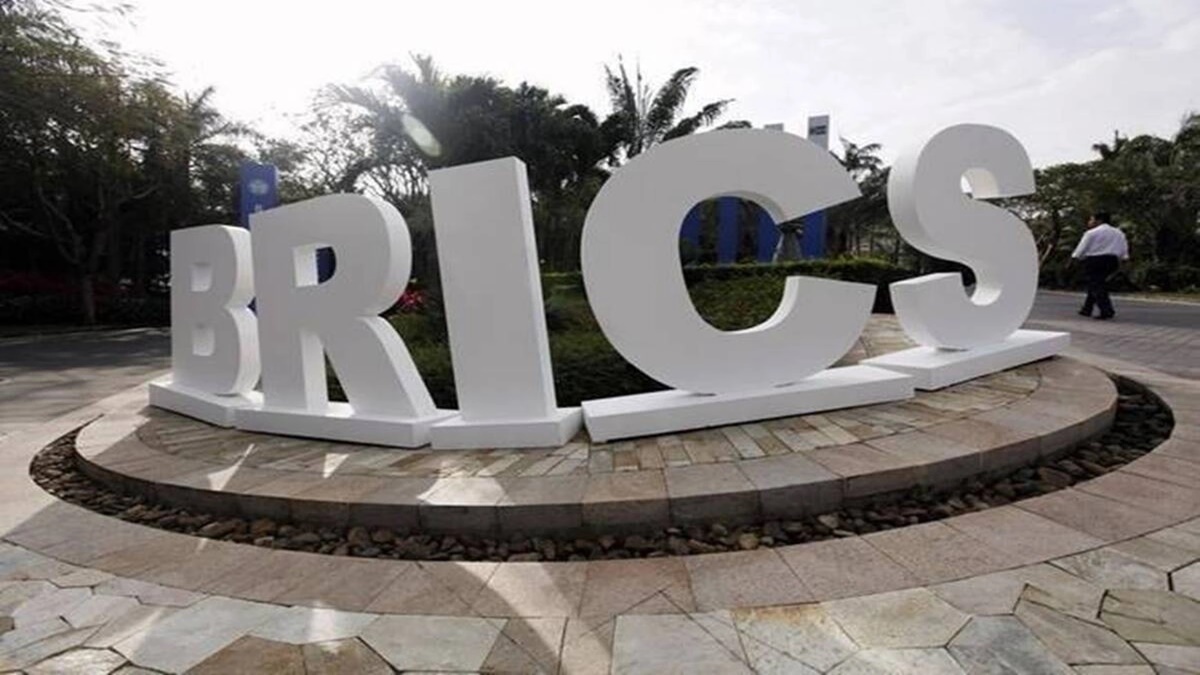The foreign ministers of Brazil, Russia, India, China, and South Africa (BRICS) have gathered in Cape Town for a two-day meeting to discuss various issues, including local currency trading and a peace plan for the ongoing conflict between Russia and Ukraine. The meeting, hosted by South Africa, will pave the way for the 15th BRICS Summit scheduled to take place in August, which will bring together leaders from the member countries, including Prime Minister Narendra Modi, Russian President Vladimir Putin, and Chinese President Xi Jinping.
Local Currency Trading Takes Center Stage
One of the key topics expected to dominate discussions at the BRICS foreign ministers’ meeting is local currency trading. Countries like India, Russia, and China have increasingly been settling trade in their respective local currencies rather than using the U.S. dollar. This shift is seen as a response to the United States’ “weaponization” of financial instruments and its impact on Russia, including the confiscation of reserves and Russia’s exclusion from the Society for Worldwide Interbank Financial Telecommunications (SWIFT). The meeting in Cape Town is expected to provide further encouragement for such local currency trading, aiming to reduce dependency on the U.S. dollar.
Buy Prime Test Series for all Banking, SSC, Insurance & other exams
Prospects of a Common Currency
In addition to local currency trading, the foreign ministers are also expected to discuss the possibility of establishing a common currency within the BRICS framework. While the idea of a joint currency has been raised previously, it poses challenges due to the diverse economic profiles, growth rates, and financial openness of the BRICS economies. Furthermore, ongoing border tensions between India and China might complicate efforts to reach an agreement on this matter. Questions also remain regarding the backing of such a common currency, whether it would be based on gold or other benchmarks. Technical concerns related to local currency trading and the rupee-ruble system may also be raised during the discussions.
China’s Peace Plan for Ukraine Conflict
The ongoing conflict between Russia and Ukraine is expected to be on the agenda, with China potentially presenting its 12-point peace plan. However, achieving a consensus among the member countries on this plan seems unlikely. Various countries, including China and South Africa, have proposed peace plans throughout the year, emphasizing the need to uphold international law and UN principles. While the BRICS foreign ministers may engage in wider discussions about the urgency of ending the conflict and addressing its impact on global food and energy security, reaching a comprehensive agreement is challenging.
About BRICS, Key Points
BRICS, an acronym for Brazil, Russia, India, China, and South Africa, is a grouping of five major emerging economies from different regions of the world.
Here are some key points about BRICS:
-
Formation: BRICS was initially known as “BRIC” and was formed in 2001 by Goldman Sachs economist Jim O’Neill. South Africa joined the group in 2010, expanding it to BRICS.
- Economic Significance: BRICS countries represent about 42% of the world’s population and contribute to approximately 23% of global GDP. They are considered major players in the global economy.
- Cooperation Areas: BRICS focuses on enhancing cooperation in various areas, including economics, finance, trade, investment, science and technology, and cultural exchanges.
- Annual Summits: BRICS holds annual summits where leaders from member countries meet to discuss issues of mutual interest, strengthen ties, and promote collaboration. The summit rotates among the member countries.
- New Development Bank (NDB): In 2014, BRICS established the New Development Bank, formerly known as the BRICS Development Bank. It aims to mobilize resources for infrastructure and sustainable development projects in BRICS countries and other emerging economies.
-
Contingent Reserve Arrangement (CRA): The CRA is a financial arrangement established by BRICS countries in 2014. It provides a framework for member countries to provide mutual support through liquidity and financial assistance in times of crisis.
Also Read: ‘World Health Assembly’ PM Modi addresses 76th Session in Geneva, Switzerland
Find More News related to Summits and Conferences




 Which District is known as the Medical C...
Which District is known as the Medical C...
 Which was the First Women's University i...
Which was the First Women's University i...
 L&T Vyoma to Study 250 MW Green AI D...
L&T Vyoma to Study 250 MW Green AI D...








